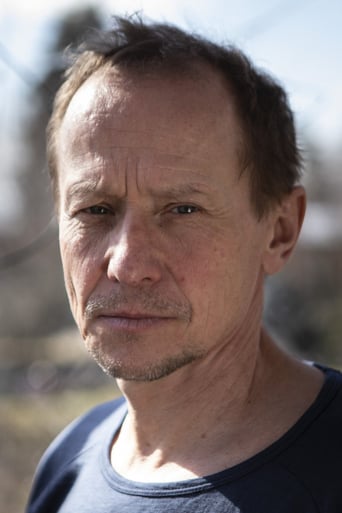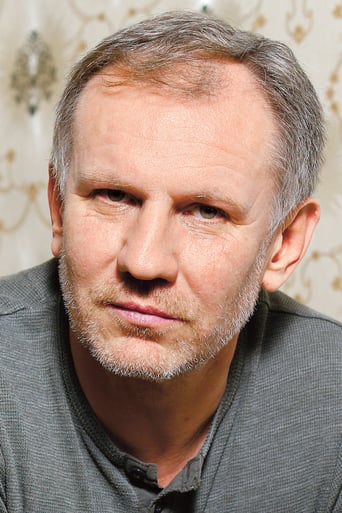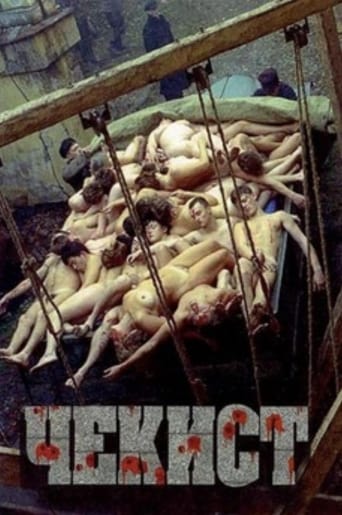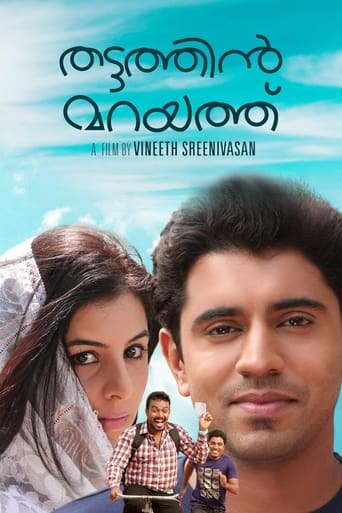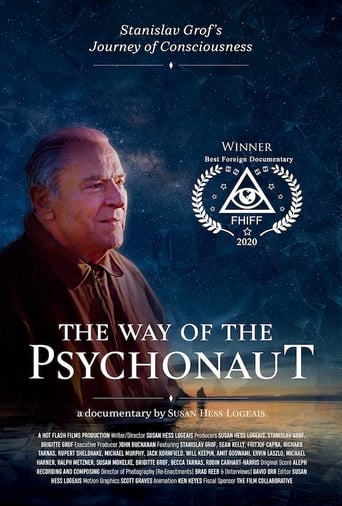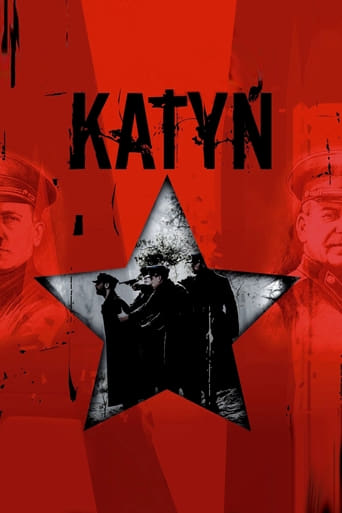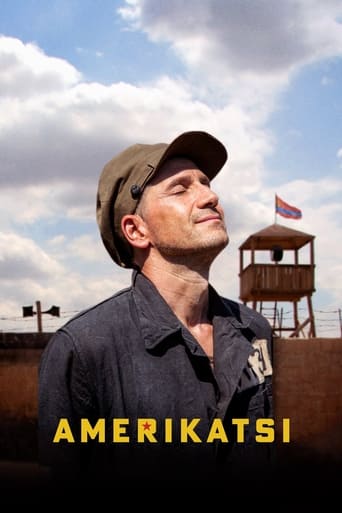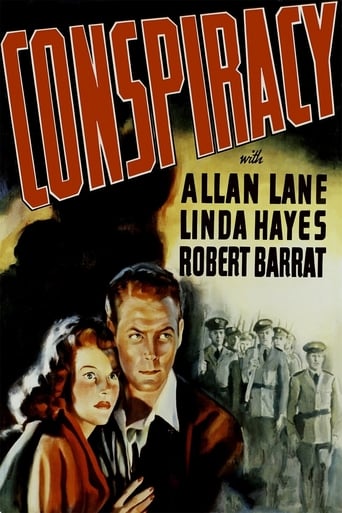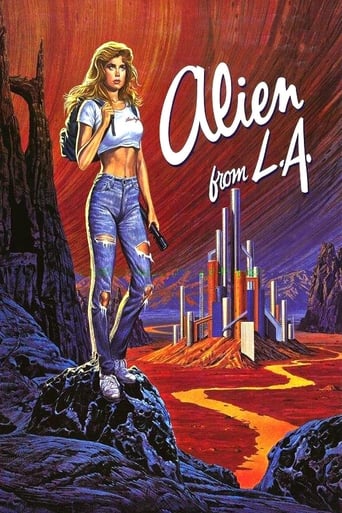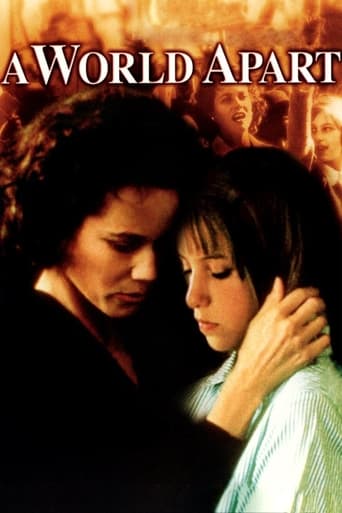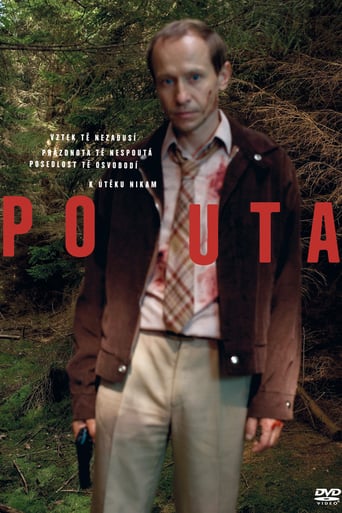

Walking Too Fast (2010)
The psyche of a ruthless secret agent in Cold War Czechoslovakia begins to unravel when he obsesses over the girlfriend of a suspected subversive he is tracking. This taut political thriller is a bleak and potent rendering of the emotional destruction wreaked by totalitarianism.
Watch Trailer
Cast
Similar titles
Reviews
the audience applauded
This movie was so-so. It had it's moments, but wasn't the greatest.
It's the kind of movie you'll want to see a second time with someone who hasn't seen it yet, to remember what it was like to watch it for the first time.
Great story, amazing characters, superb action, enthralling cinematography. Yes, this is something I am glad I spent money on.
Here comes another film allegedly banned in Russia... Whilst in large parts of Europe free from the proverbial 'Russian World global project' (especially in Czech Republic where it was shot), this controversial creative work has certainly not been out of place. Some are eager to make everyone believe that Russia is nothing but a detention camp where all are fed the same gruel, where it is foolish to expect that each cell will hold the net and that they will arrange a mandatory viewing of 'The Shawshank Redemption'. Well, boil over, you Stormy Petrels of the new Russian Revolution, there is still pluralism in contemporary Russia! And, in particular, the film we are speaking about was available on the festival 'CZECH IN', which has been held in Moscow, Saint Petersburg and a couple of major Russian cities annually for the last several years.However, my irony is easy to be parried by many of those who belong to the groups, for whom the words like 'KGB legacy in the modern Russian regime' or 'Ruscism' are password into the world of freedom of conscience rather than just empty words; of course, the expression 'modern Russia as a detention camp' is a sarcastic hyperbole under the motto 'no rest for the wicked regime': instead of resting on their laurels, those in power have to be constantly looking around, whether someone recalcitrant holding a brick, broken out of the walls of the Kremlin, is taking aim at them...But I personally am cowardly enough to prefer not to bother myself with such inconvenient questions as 'am I a hero or a timeserver', but also, from time to time, to make fun of those who do bother. Yet I understand that someday, I might be quite pinched on by the geese I am teasing here right now (should the time of such 'geese' indeed come in long-suffering Russia).However, I have watched 'Pouta' aiming completely not at that supreme and noble (in opinion of the civilised society, necessary to mention!) goal of ascension beyond that obdurate casemate, inveterately permeated with totalitarianism heavy smell, where Russia has again locked itself voluntarily. What an irony I have, writing all the aforesaid! Combating Putin regime by means of a film like 'Pouta'? (The main antagonist resembles Putin himself and is, just as Putin in the past, a Communist secret service functionary.) Homeric laughter! All the more so, none at all but festival maîtres, from which it has snatched its lot of praises, noticed it: box office was zilch... Everything is much easier: I wanted some suspense and noir from 'Pouta'. And, honestly, I have found some. Although I am not thrilled. The end was quite disappointing: I would not expect the main heroine to get away so easily. No, I am not a cruel person but a realistic one. So I expected such an ending from the film, where an innocent girl, a simple crane operator, rejected courtship of a villain, a communist serviceman, preferring rather death, that the fur would really fly... But alas, the man with a REALLY Russophobic last name, Rusnák, have not been monstrous enough... Despite Ondřej Malý, as the film was being watched, repeatedly made an impression of an actor able to play someone to be described like this: The Sleep of Reason Produces Monsters. Just see: the best spy, in the opinion of the top-brass (next best, with the top-brass itself being the best of the best, certainly); hits densely when pistoling; would morally rape the dissident he 'takes care of' so that the latter is available for twisting around little finger (you bet: striking a chord in one's intimate life could be worse than the notorious third degree! however, he is able to smash anybody, even a tall trasher, despite being so short himself); but at that, he suffers awful fits (panic attacks, things like that) and occasionally behaves as a weak female (drinks heavily and complaints about his school past where he was bullied; breaks dishes and expels his wife from the own home). A fearful man altogether. Kind of a fairytale antagonist though – simultaneously fearful and funny. So he occasionally resembled... Grouchy the Smurf: would always be saying 'I hate' never mind appropriately or not... So in the end, he failed... P.S. A 2010 film. But the times they are a-changin': to date, it is quite a sedition even in Czech Republic. Since Zeman, the Czech President, likes Russia!
A bleak story that depicts how the repressive regime enforces its will on the Czech people and how the enforcer's psyche becomes empty and destructive.Pouta (Binding ties) centers around a writer and a team of secret police who follow him. The chief of the secret police team is a righteous man with an empty life who has an unlimited license to inflict damage on the people he follows. He becomes obsessed with the girlfriend of his subject and starts plotting how to achieve his increasingly disturbing goals, without regard for his superiors, colleagues and collaborators.Unfortunately the script has several holes, the characters are not fully developed and at times the movie drags. The soundtrack and sound editing are downright distracting.But overall it is a dark view into the world under the communist regime, with its twisted logic and uncontrolled power of those in power. You can spot some dark humour. Surreal with unpredictable results. Nothing happy can come out of these circumstances. It's not a light entertainment, more of a history lesson.
A sleeper, as these things go, now waking us all up. Made in 2009 and released in 2010 to a desultory response, the film then began to gather awards including a Czech Lion for best film in 2011. It toured the USA in 2012 and is one of a handful of new Czech films touring art-house cinemas in the UK at present (April 2013).No need to describe the plot – suffice it to say that it concerns a Statni Bezpecnost officer (i.e. secret policeman) in Czechoslovakia after 1980 (a Solidarity poster gives a terminus post quem) and before the Velvet Revolution of 1989. The film information and blogs refer to the fact that it is set in 1982, but there was nothing in the English sub-titles that I spotted to confirm this. This is a dark past which Czechs and Slovaks need to face up to; as did Lumet's Pawnbroker for a public understanding of the Nazi Death Camps when it came out in 1964, this film will mark an important Czech milestone in this process. The secret policeman is the magnet for the film. His victim,Tomas Sikora, is a shadow, although nuances of the portrayal may have escaped me.Unfortunately, in the modern manner, it is 146 minutes long. It begins tautly, but in the last 20 to 30 minutes this tautness is abandoned. Several commentators refer, correctly, to its noir elements but one noir element they ignore is the tightness that a 90-minute feature can create: beginning, middle and end.The digital camera work and choice of locations produces a highly convincing drabness, but for some reason – perhaps the continued sway of neo-realist precepts – it eschews close-ups of hands and objects, although it does close in on facial expressions effectively. And yet close-ups can be used to create suspense as Hitchcock well knew, and if we are watching a thriller not a historical tract, as we are, then close-ups could have been used to great effect: Antonin's paper bags, his gun, for example. And why not make a fetish out of the handcuffs he carries?One striking thing is the way it handles disparate groupings of characters: Tomas, Klara and Pavel; Antonin, Martin and the Lieutenant Major; Klara and Darina; Tomas and his family; and so on. Not quite Altman's Nashville but in its own way using a wide range of characters to evoke a whole society and era. No doubt this is what its director, Radim Spacek, would point to in order to justify the film's length. At the centre of it all is Antonin Tonda, on-screen for much of the film. The way he chooses to corrupt himself, beyond the control of his masters, is a metaphor for the way Soviet Communism corrupted itself. He starts as a risk to all citizens, but he turns himself into a threat to the whole state. When I came out of the cinema, I could see how the system that produced a narrative like Walking Too Fast could also trigger Bela Tarr's The Turin Horse (Hungary 2011), a re-wind of the Book of Genesis back to 'Let there be dark'.
This is very straight forward picture about raw reality if you did not fit right into the society system during communism time. I expect everyone ho likes themes with strong psychological lines will be interested as well as people who are interested in picturing the society on the east side of 20th century world. My movie-genre orientation is a bit different and i selected exceptionally this type of movie. Even through i got quite deep impression and would not say anything particularly bad. The set and the actor performances are convincing with topping main character impersonated by Ondrej Maly as Antonin. Not to say only pros - there have been some parts of the story which i would rate as a bit weaker, but i could not describe the details without spoilers.
